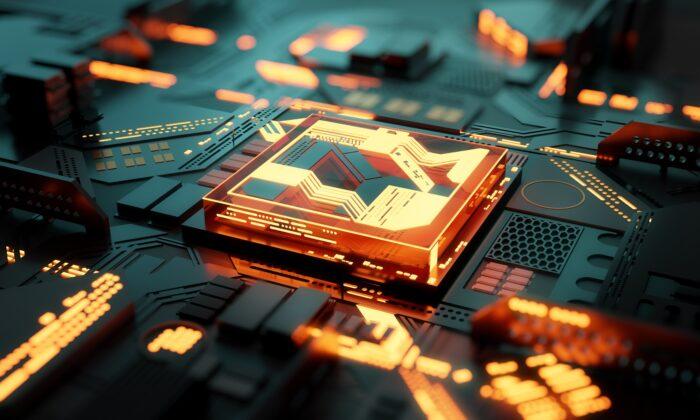The Australian Missile Corporation (AMC) has propelled plans to beef up the nation’s defence industry with an agreement that could see the development of quantum computing technology for its new guided weapons systems.
The deal arrives amid burgeoning global tensions with China, with growing concerns regarding the communist regime’s rapidly expanding military might.
Archer Materials, a manufacturer of quantum computing processors, announced it had signed a non-binding letter of intent with AMC to potentially support the development of Australia’s sovereign defence capabilities.
“Archer is developing quantum computing processor chip technology and currently possesses advanced semiconductor manufacturing capabilities that will be of benefit to a future sovereign guided weapons enterprise,” stated an AMC media release.
Archer plans to collaborate with AMC—a subsidiary of NIOA, Australia’s largest weapons and munitions contractor—to support the Australian Government’s $1 billion (US$770 million) injection towards the Sovereign Guided Weapons Enterprise (SGWE), announced in March.

The SGWE plans to bolster Australia’s defence potential and facilitate the ability to manufacture a suite of precision weapons domestically, particularly in preparation for any potential disruption of global supply chains.
“Archer supports the Government’s vision for the development of a sovereign guided weapons enterprise in Australia, and we look forward to contributing to NIOA’s collaborative initiative,” said Archer CEO Mohammad Choucair.
The SGWE is part of a $270 billion (US$210 billion) government plan to strengthen the nation’s defence industry over the next 10 years, including the development of high-tech submarines, fighter jets, hypersonic weapons, and advanced munitions.
“Creating our own sovereign capability on Australian soil is essential to keep Australians safe, while also providing thousands of local jobs in businesses right across the defence supply chain,” Australian Prime Minister Scott Morrison said.
Quantum Computing Limitations
One of the limitations of current quantum computing processors, also known as qubit processors, involves the need for chips to be held at frigid temperatures of -273 degrees celsius, slightly above “absolute zero”—the coldest temperature matter can reach.“Current quantum computing technologies are limited in ownership and use because they use qubit processors that can only operate at low temperatures and/or are difficult to integrate in modern electronics,” Archer stated on their website.
Archer promises a ground-breaking, world-first design that could allow for operation in room temperatures with their patented “12CQ” qubit processor chip—making the technology more accessible across industries— and is currently being built in Sydney, Australia.
“The successful development of Archer’s 12CQ room-temperature qubit processor chip could potentially provide a breakthrough solution to the widespread use and ownership of quantum computing powered technology, owing to the unique materials properties of the 12CQ chip,” Archer said.





